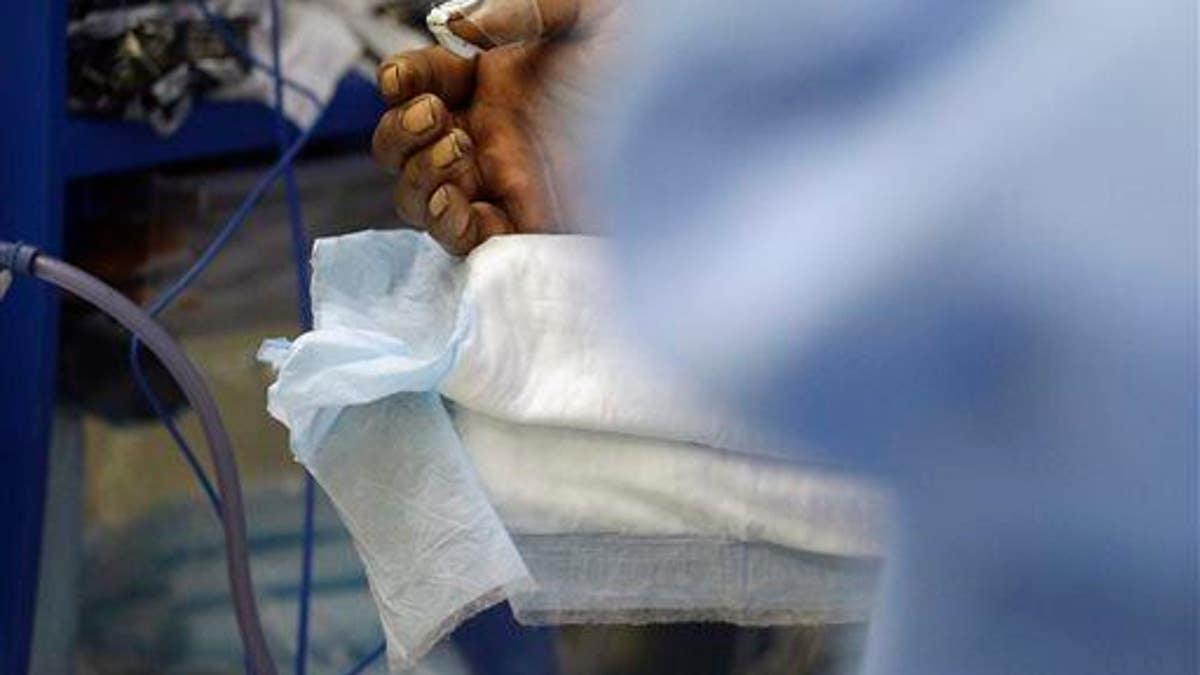
In this Aug. 6, 2014, photo, a gunshot victim lies on a table at Cook County���s Stroger Hospital in Chicago. (AP Photo/Nam Y. Huh)
More than 80% of US soldiers' deaths between 2001 and 2011 were the result of blood loss and septicemia. There's limited time to save trauma victims experiencing significant blood loss—the so-called "golden hour"—and researchers at the University of Alabama have been working for 19 years on a way to extend that time so that wounded soldiers and remote trauma victims are more likely to survive the long trip to a hospital.
They think they've hit upon the secret ingredient—a synthetic version of the female sex hormone estrogen, and they've received a $10 million Defense Department grant to test it on humans.
The breakthrough dates back to 1997 and is actually the result of a mistake. Researchers got an order of female mice instead of males; they almost didn't use the mice because of how much female hormone levels fluctuate, but they went ahead and were astonished to find that all of them resisted sepsis without any other treatment.
When they tried it again with another batch of females it failed—because the mice were in a different part of their estrous cycles with lowered estrogen.
After further testing, they found that synthetic estrogen also improves heart and liver function, even after 60% blood loss, because it dilates blood vessels, moving fluid more efficiently, reports Mental Floss.
The latest estrogen variant, EE-3-SO4, helps prolong life for up to six hours post-trauma and could help not just trauma victims in general, but especially those with traumatic brain injuries.
(This form of estrogen fuels lust and racy behavior.)
This article originally appeared on Newser: Startling Key to Saving Soldiers, Trauma Victims: Estrogen?
More From Newser








































